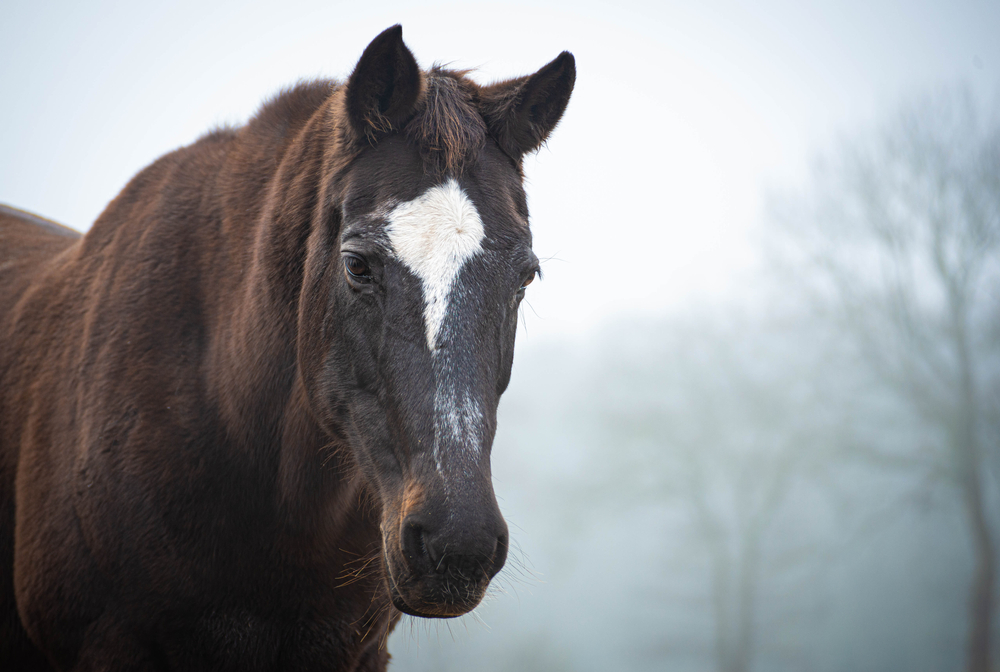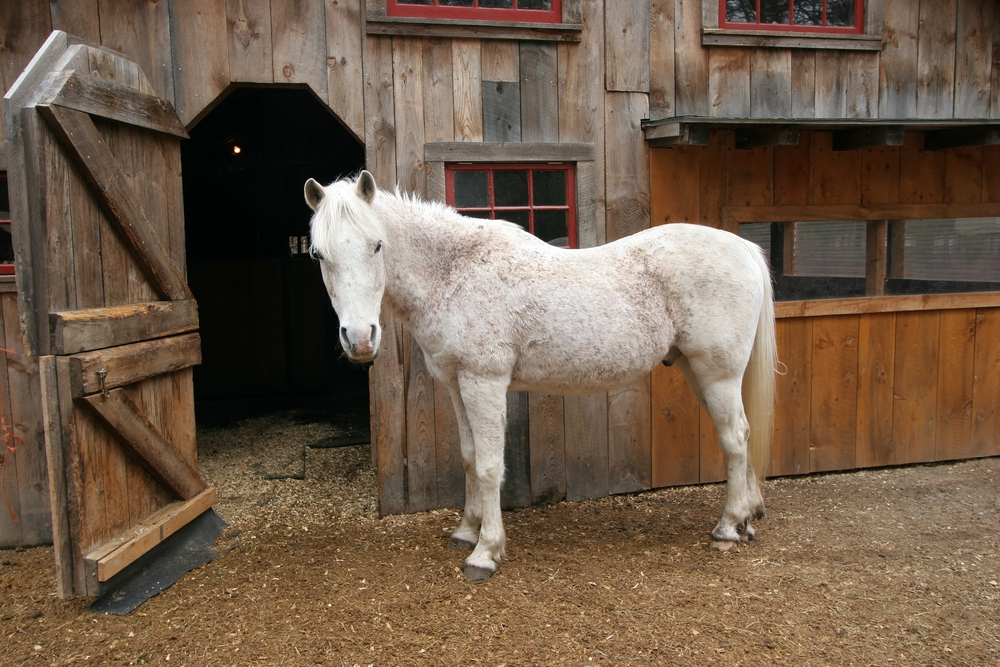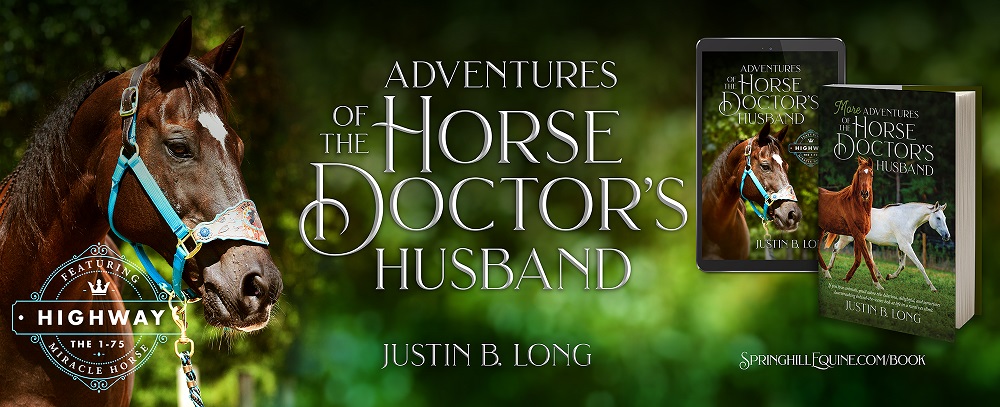Tuesdays with Tony
As a cat, I have 9 lives, and am therefore perpetually young, despite my many years of experience. Don’t question me on this. Horses, though… . After many seasons of showing, trail riding, or general riding, you eventually find that your horse has reached the age of retirement and is entering his golden senior years. This can be different for each individual animal, but in general, we consider a horse as a “senior” around 15 to 20 years and older. Senior care is important and can often be overlooked (cats would never allow this, of course). Our senior horses have general maintenance requirements that are very similar to our younger horses that are still in work. Additionally, there are some special considerations when it comes to nutrition, diseases, and cases of chronic lameness.
Vaccines
In my [not-humble cat] opinion, one of the most important aspects of senior care is to continue the general maintenance that was part of their routine health care. This would include continuing to booster the core vaccines (Eastern Encephalitis, Western Encephalitis, Tetanus, West Nile and Rabies). This is important because horses are constantly exposed to these diseases through mosquitoes, the soil, or other animals, in the case of rabies. Therefore, even if they have been vaccinated their entire life, that does not mean that once they hit their senior years that they no longer need to be boosted.
Deworming
Similarly, deworming based on fecal analysis is just as important, if not more so, in elderly horses that may have secondary conditions impacting their immune system. These issues make them more susceptible to intestinal parasites. They might have been able to fend them off when they were young, but getting old is rough. I like to deny my geriatric status, but it does make everything a little harder. Cushings (PPID) is just one common senior disease that makes it easier for parasites to flourish. This can mean even if your horse was a low shedder in their younger days, they may not retain that status. The only way to know for sure is at least yearly fecal egg counts.

No Hoof, No Horse
We should never forget about podiatry care for the senior horse. Not only can they have conditions impacting their feet, but chronic conditions of the tendons and arthritis of the joints can be exacerbated if their feet are overgrown or imbalanced. Have you heard of the saying, “no hoof, no horse?” That applies at all stages of life!
Condition
Another general consideration for our senior horses is to monitor their hair coat and body condition in the extreme times of the year, when it is excessively hot or cold. Horses that are underweight, or those that are not growing a thick coat, may need to be blanketed in cooler weather, especially if there is limited shelter available. Conversely, if your horse is over-conditioned, or fat, or has a thick hair coat, they may be prone to overheating in the summer. These horses may need to be clipped, given additional shade, and in some cases even stalled with a fan. We’ll discuss some disease conditions in seniors that may predispose them to these sensitivities.
Nutrition
As with all life stages, nutrition plays an important role in the health of your animal. Luckily, many companies, such as Purina, Nutrena, Triple Crown, and Seminole, among others, formulate complete feed products for senior animals. Complete feeds include chopped roughage, which is important for horses that can’t chew grass or hay well enough anymore. If your senior horse is unable to chew and digest ordinary feed properly, the senior feeds can be fed at higher rates to act as a complete diet for your horse. It’s important to read the quantity of feed recommended on these, as it’s much higher than non-complete feeds, and you can accidently starve your horse by under-feeding them on senior. Complete feeds are often needed with older horses because they may have worn out the life of their teeth.
Dentistry
Horses are fairly unique with regards to their dentistry because they have hypsodont teeth. This means that their adult teeth gradually erupt throughout their life and get worn down as they age. This is why veterinarians “float” or file down the teeth in certain areas that can get sharp from this wearing-down process as they age. In their late 20’s and early 30’s the horse may completely erupt the end of some of their molars and this may limit their ability to chew and digest hay and forage properly.
Some horses can also develop a condition that affects their incisors called Equine Odontoclastic Tooth Resorption and Hypercementosis (EOTRH). It can be a painful condition that we can diagnose based on exam and dental radiographs, signifying the importance of continued yearly dental exams on our older horses.
Disease Vulnerability
There are a few diseases that we monitor as a horse ages. Some of these diseases are more breed-specific than others. The major endocrine condition that we think of with older horses is Cushing’s Syndrome, also known as Pituitary Pars Intermedia Dysfunction (PPID), which causes increased levels of a hormone called ACTH. Some of the clinical signs of Cushings often include loss of topline musculature, long, thick hairs sticking out of their coat (hirsutism) and chronic laminitis.
Other conditions that can occur in older horses include Equine Asthma, previously known as Heaves, which is often triggered by allergens. Horses can present with coughing and increased respirations. There is also Uveitis, which is inflammation in the eye that can lead to blindness. A more well-known term for this condition is moon blindness. Finally, previous injuries or the impact of a previous athletic career can result in managing chronic lamenesses and long-term pain management.
Some medications that can help manage these conditions include Equioxx or bute. Some injuries may need to be managed with joint injections, such as Arthramid or PRP-type products. In any case, having your veterinarian help create long-term strategies for pain management is essential in maintaining an older horse’s quality of life.

Golden Golden Years
Overall, once our horses reach their senior years, they still require some extra love and attention that your equine veterinarian is happy to provide. The key takeaway from this information should be that age is not a disease, it is just a number! We are lucky to have many advances in equine veterinary medicine care that are allowing our horses to live longer than previously expected. With diligent care, we can make our horses’ senior years some of their best years.
Ask my minions about the Senior Add-on to your Wellness Plan at your next visit! Our Senior Wellness add-on includes routine bloodwork, testing for Cushings (PPID), and foot x-rays. There’s no better way to make sure your Super Senior is monitored for early signs of little problems so they don’t become big problems. This wise cat is on the feline equivalent, which you can also ask about, as we have a wonderful small-animal veterinarian now. I highly recommend it. Tasty treats for us patients come with those blood draws!
Until next week,
~Tony
P.S. If you haven’t subscribed to this blog yet, be a good human and scroll down to the big purple box. You can do it! There, that’s a good human. Just put your email address in there, and I’ll email you my blog every week. That way you don’t miss out on any of my cat wisdoms. You’re welcome.
Tuesdays with Tony is the official blog of Tony the Clinic Cat at Springhill Equine Veterinary Clinic in Newberry, Florida. If you liked this blog, please subscribe below, and share it with your friends on social media! For more information, please call us at (352) 472-1620, visit our website at SpringhillEquine.com, or follow us on Facebook!
[jetpack_subscription_form title="Subscribe to Whinny's Wisdoms"]

